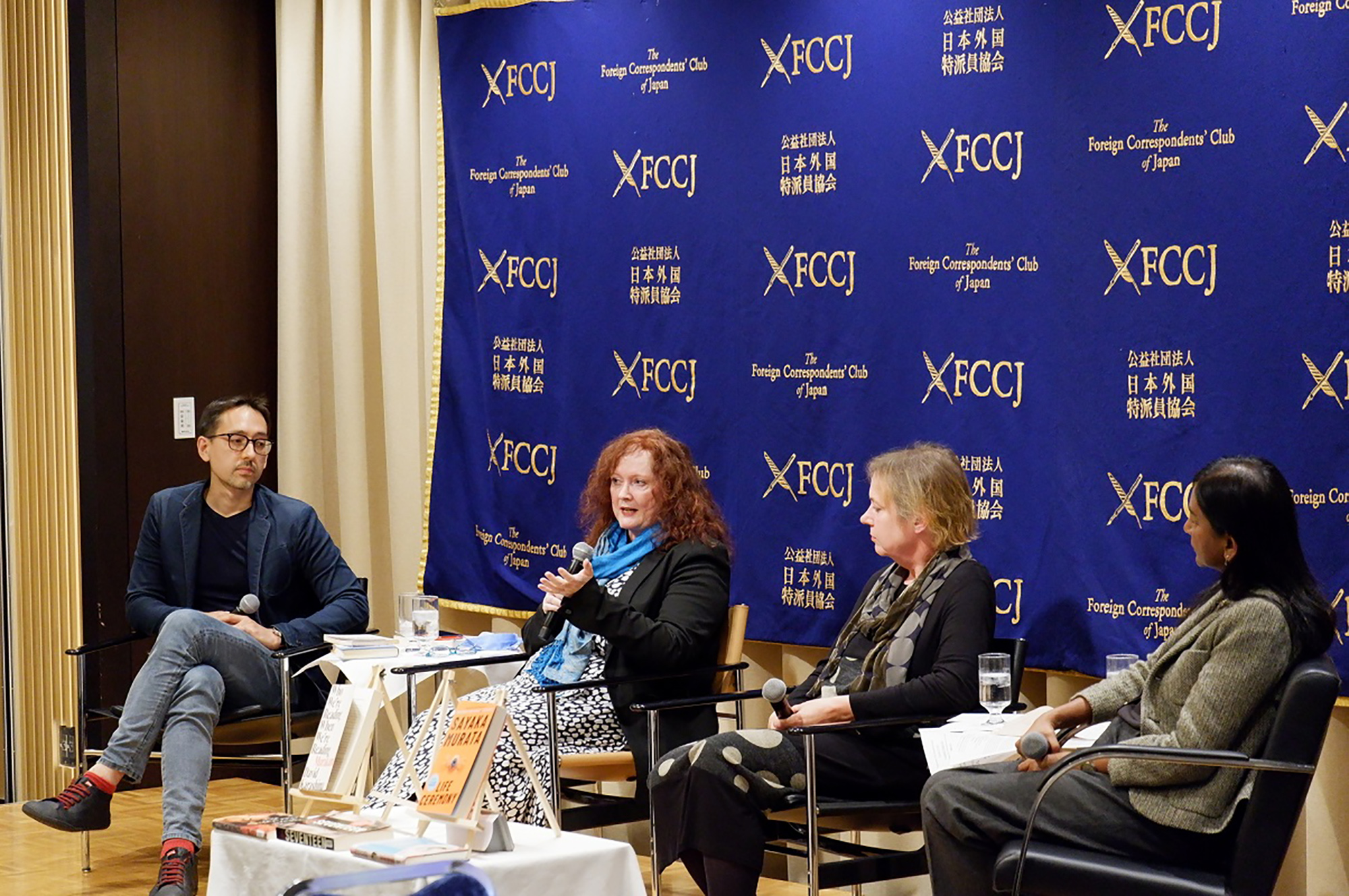Issue:
December 2022 | FCCJ Book Break
Interpreting Japanese fiction for English speakers is an exhausting, deeply rewarding vocation

The FCCJ library committee recently held an animated roundtable event on the intricacies of English translation of contemporary Japanese fiction. Three respected translators – David Karashima, Louise Heal Kawai and Ginny Tapley Takemori – came to the club to share their personal stories and professional experiences.
They spoke of a fiercely demanding profession, tough competition and months, if not years, of hard work, depending on the book.
Kawai said that Japanese publishers request English samples to sell the rights to a Western publisher, which might ultimately select a different translator. In addition, translators are often given a marginal role in the publishing world. “It is not uncommon to see our editions displayed in book stores without the names of the translator on the covers,” Kawai said.
It was easy to sense the speakers’ commitment to their work and the pleasure they derive from capturing the beauty of Japanese literary language for a foreign audience.
“I fell in love with the literature,” said Takemori, who was introduced to Japanese fiction by Japanese friends when she lived in Barcelona, where she worked as an English translator of Spanish and Catalan, and as a literary agent. The connection was strong enough for her to transfer to the School of Oriental and African Studies, London University, to study Japanese.
Kawai worked as an English teacher in Nagoya and later completed a degree in Japanese language and literature in Britain. This year, she became a full-time translator after juggling work as a translator and English teacher. “I took up translation as a career because I really loved the art," she said. She and Takemori have translated books, plays and short stories.
David Karashima, who was born in Japan to a Japanese mother and British father, is an associate professor at Waseda University, where he also serves as associate director of the Waseda International House of Literature (Haruki Murakami Library).
He started translating in 2006 and has since written fiction and other books. As a child, Karashima was able to communicate in Japanese and English, and spoke of translation as an exercise in moving between and separating English and Japanese. Recently, he has been exploring ways to merge the two languages.
Among the many books she has translated, Takemori’s translation of the 2018 novel Convenience Store Woman, earned its author, Sayaka Murata, accolades from the New Yorker, among others. The English-language edition has sold 650,000 copies.
The book tells the story of a 36-year-old female employee of a convenience store who resists pressure to conform to Japanese social norms: finding a stable job, marrying and having children.
Takemori was praised for her ability to capture the multitude of sounds heard in a convenience store. Her skill is critical to communicating the atmosphere of typical Japanese konbini to a Western readership that might be unfamiliar with the stores.
“I used a variety of English sound words - the beeps of the bar code scanner, the clacking of heels walking around the store —rather than rely on the direct translation of the original Japanese,” Takemori said.
“Repetition does not work well in English, and using sound words kept the opening paragraph as fresh and engaging as the Japanese, and helped to covey the world of the convivence store to readers who have never been in one.”
The speakers' experiences underline the importance of having an intuitive understanding of the original work, a relationship that is difficult to describe in words. The process does not necessarily require them to develop close relations with the Japanese authors, some of whom are reluctant to meet their translators.
There are exceptions, though. Kawai spoke about her exchanges with Mieko Kawakami when she was translating Ms Ice Sandwich. “I had met Kawakami previously at a literary workshop, and she was more than happy to respond to any questions I had about the text,” she said. Kawai cautioned against sending the translation to an author who might not have the requisite English skills to read it. “We tend to be a little bit interpretive with the English, and that is not necessarily understood,” she said.
The Book Break ended with a tribute to the work of the guests and other translators. Without them, English readers would not be able to enjoy one of the world’s most important literatures. Given that Western publishers are even more eager to promote Japanese fiction, we look forward to more brilliant translations by Karashima, Kawai and Takemori.
Suvendrini Kakuchi is Tokyo correspondent for University World News in the U.K.

